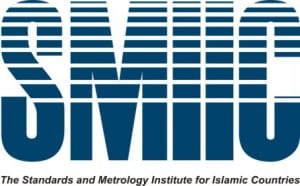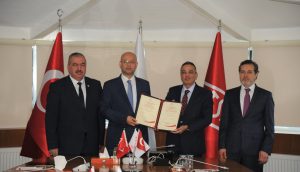It is estimated that the halal food and lifestyle products could grow at a rate of nearly 8 % to reach a total market value of US$4 trillion as the end of the year 2020. Thus, a reliable halal certification gains undeniable importance worldwide. In the next decade, the total market value for halal certification itself is expected to reach nearly US$6 trillion. Therefore, the significance of halal products and services is rising in the global arena and it is becoming one of the dynamics that stimulate international trade. Thus, the potential global volume sectors which are subject to halal certification and accreditation will rapidly increase.
At the moment, the Islamic countries act individually or in small groups of countries in terms of halal certification and accreditation systems. Such a practice has a negative impact on all stakeholders, from manufacturers to consumers. For example, it is possible that more than one halal compliance certificate is needed for the same product. Such a duplicative service costs money, time, and labor.
For this reason, the Organisation of Islamic Cooperation (OIC) and its affiliated body Standards and Metrology Institute for Islamic Countries (SMIIC) aim to facilitate trade by the implementation of harmonized standards and technical regulations across the Islamic World. A harmonized halal quality infrastructure is expected to yield a flourishing economic activity and an increase in intra-OIC trade.
Turkey has established the Halal Accreditation Agency (HAK) for pioneering Islamic countries to achieve these goals. HAK is a public entity with administrative and financial autonomy and is the sole authorized institution to provide halal accreditation services in Turkey.
Via providing halal accreditation services to the halal conformity assessment bodies (HCABs) which are resident in Turkey or located anywhere in the world; HAK will assess the criteria and measures related to halal accreditation based on OIC/SMIIC 2a standard and thereby ensure the effective implementation of a common halal quality infrastructure scheme amongst both the OIC and non-OIC region.
Transparency, accountability and traceability lie at the foundation of the HAK’s main accreditation process and its quality policy. Within this perspective, HAK carries out its activities totally in line with the OIC/SMIIC 3b standard. HAK aims to use the most competent digital tools and contemporary accreditation approaches for its application and assessment processes.
In line with this goal, an online system has been developed, Halal Accreditation Application System (HAKSIS), will allow a total online application process for prospective client HCABs of the HAK (now available on https://haksis.hak.gov.tr).
Basically, HAK grants accreditation to HCABs in accordance with the OIC/SMIIC standards. Due to the nature of the OIC/SMIIC standards, the operations of HAK are in compliance with the relevant international standards on food security, hygiene and health as well as quality management systems, etc.
After HAK completed its technical and physical infrastructure, it began to accept halal accreditation applications as of October 2019. Since then HAK has received halal accreditation applications from 16 halal conformity assessment bodies, 7 of which are foreign HCABs from Africa to the Far East that certify products and services to the value of approximately over  hundreds of millions of dollars.
hundreds of millions of dollars.
As of 31st December 2019, HAK has granted the first accreditation to Turkish Standards Institution (TSE) which is the very first halal accreditation according to the OIC/SMIIC 2 standard in the world. As of now, 15 of other applications’ initial technical evaluations have been completed. To ensure the sustainability and credibility of its accreditation scheme, HAK will perform regular surveillance assessments, at least once a year within the entire accreditation cycle of 4 years. Details regarding the accreditation process is available on HAK’s website: www.hak.gov.tr.
a OIC/SMIIC 2:2019 – Conformity Assessment – Requirements for Bodies Providing Halal Certification
b OIC/SMIIC 3:2019 – Conformity Assessment – Requirements for Halal Accreditation Bodies Accrediting Halal Conformity Assessment Bodies (Both standards are available for online sale via www.smiic.org)




